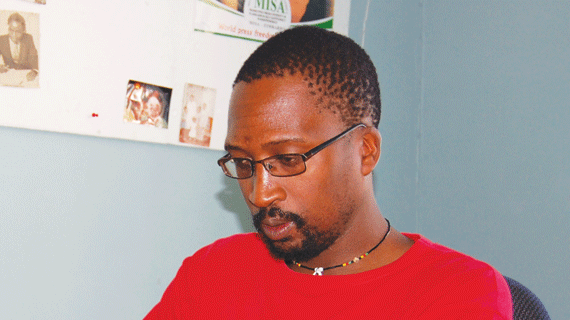
COLLECTIVELY celebrating the advent of a new year is risky business in Zimbabwe. Each new year has signified more an event than the beginning of any particularly optimistic time-based process.
Unless of course we are dealing with the personal, such as the year one tied the knot, changed a job or managed to bring another Zimbabwean into being.
But where we are dealing with broader societal questions, very limited, little, new or improved circumstances come in attendance with the advent of a new year. So optimism is usually in short supply in relation to the political economy. In this sphere, time tends to happen to us. We do not happen to time.
Because we have had one ruling party with the same leader for the last 33 years, we have therefore learnt not to expect anything spectacularly better with each passing year. This is perhaps due to the possible reality that a majority of our country’s citizens are historically aware of the tendencies of the ruling party vis-à-vis its desire to hold on to political power at all costs.
It is self evidently incapable of bringing a necessary political optimism to the passage of time. There is an assumedly strong opposition political party which, as it has turned out in 2013, is incapable of fully embracing its historical and generational democratic task.
Furthermore our private sector has over the years enamoured itself to short-term investments that are based primarily on proximity to the State, corruption, cronyism and consumerism without innovation or social democratic responsibility.
So technically, 2014 is most likely to be another numerical year in the lived collective realities of the people of Zimbabwe.
Political and economic affairs will be exercised under the aegis of undemocratic State capitalism and opposition politics without organic or people-centred character.
- Chamisa under fire over US$120K donation
- Mavhunga puts DeMbare into Chibuku quarterfinals
- Pension funds bet on Cabora Bassa oilfields
- Councils defy govt fire tender directive
Keep Reading
Since optimism is a function of all progressive intellectualism or even sometimes politics, it can turn out differently in at least four respects.
The first is that of the ability of the ruling Zanu PF party to engage in serious processes that lead to leadership transiton and therefore the possibility of political change in the country. Given the fact that Zanu PF celebrates its 50th anniversary in 2014 and has an elective congress, there is no better opportunity for it to demonstrate its understanding, even if long delayed, of the fact that no one leader or leadership can rule a country for as long as has been the case.
For 2014 to be different, Zanu PF has to select a new leadership or at least make it self evident that it is in the process of doing so pending its elective congress.
Secondly, for 2014 to be a progressive year, the opposition political parties must demonstrate an internal and external commitment to democratic processes.
Paying lip service to democracy is no longer enough as was evidenced by the shocking (even though controversial) defeat of the MDCs at the hands of Zanu PF.
The opposition has to disabuse itself of messianic tendencies of its individual leaders and function more on the principle of democratic collective responsibility than pseudo personality cults that are reminiscent of blind fanaticism without democratic principles, values and belief.
Where the opposition fails to do so, again, 2014 would remain a bleak political collective experience of time for Zimbabweans.
Thirdly, capital or the private sector as it is commonly referred to, must do its level best to negotiate more on the ability it has to contribute not only corporate taxes but more on the creation of technological innovation for the national economic advancement.
Capital’s extractive tendencies have to be placed within the framework of social democracy and not State capitalism as is currently being propositioned by government’s Zim Asset. Public-private partnerships should not be a synonym for the privatisation of basic services such as water, and capital needs to be more honest about this if it is to stem eventual targeting by a desperate government where and when its profit motives are called into question.
Fourthly and finally, 2014, will be an honest year if civil society organisations sang less for their supper and more on behalf of the principles, values and people that they claim to represent.
From the war veterans, through to the human rights related organizations, there needs to be a new attitude toward democratic honesty that resides less in the boardrooms of resources to those that are democratically organic without false incrementalism or dictatorial sophistry, even where it seems against the donor or political party grain.
As it is, historical precedent indicates that we have no tangible reason to be collectively optimistic as a country about the incoming New Year. Save for what may personally occur to us, broadly spoken for, unless we demonstrate commitment toward occurring on time, and not time occurring on us, 2014 will be a case of “Now you see it, now you don’t”.
Takura Zhangazha writes here in his personal capacity










